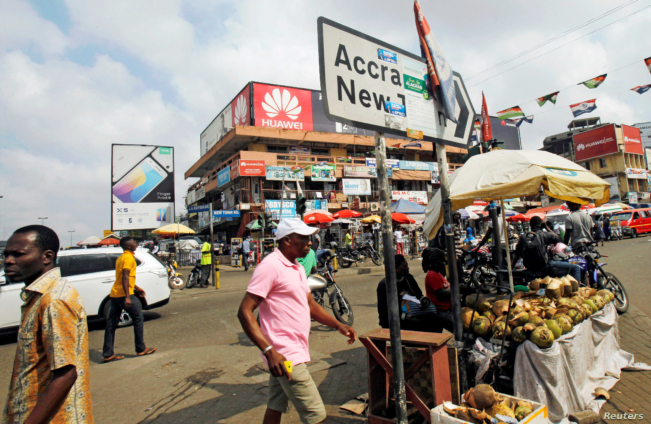
Audio By Carbonatix
Ghana stands at a crucial juncture in its development journey, facing a myriad of challenges ranging from education and healthcare to environmental conservation and governance.
In navigating these complex issues, the role of Development Communication experts cannot be overstated.
But despite its significance, the field remains largely underestimated and underutilized in the country.
Development Communication, a multifaceted discipline that leverages communication techniques and strategies to foster social and economic progress, holds immense potential for addressing Ghana's developmental challenges. From NGOs and government agencies to international organizations and media institutions, the need for Development Communication expertise permeates across various sectors.
In Ghana, the misconception surrounding Development Communication experts often leads to its undervaluation. All too often, individuals are hired for roles without a thorough understanding of the profession's nature or the intricacies of its work.
Consequently, projects and policies such as the Free Senior High School (SHS) initiative, the E-Levy implementation, and digitization efforts suffered due to a lack of consultation with Development Communication experts. Without their guidance, technical teams may overlook crucial stages in project execution, leading to inefficiencies and even project abandonment in remote areas.
The primary objective of a Development Communication expert is to empower individuals and communities by equipping them with the information, knowledge, and skills necessary for socio-economic advancement. This involves engaging stakeholders, fostering dialogue, raising awareness, mobilizing resources, and facilitating participatory decision-making processes to achieve sustainable development outcomes.
However, many government agencies and institutions in Ghana fall short in this regard. Stakeholder involvement in decision-making processes is often sidelined, and critical project stages are overlooked.
As a result, valuable resources are squandered, and the potential impact of development initiatives is diminished. It is imperative that stakeholders are engaged throughout the project lifecycle to ensure its success and sustainability.
Development Communication experts are inherently multidisciplinary, drawing upon principles from communication theory, sociology, psychology, anthropology, economics, and political science. Development Communication experts understand the cultural, social, and political contexts in which communication occurs, Development Communication experts can tailor messages and interventions to effectively address local needs and challenges.
Addressing development challenges, Development Communication experts design communication strategies that are tailored to the cultural, social, and economic context of the target audience. They employ a mix of communication channels, including mass media, interpersonal communication, and digital platforms, to effectively reach diverse segments of the population.
Thematic areas within Development Communication encompass social and behavioural change, participatory communication, media and information literacy, advocacy and social mobilization, community development communication, and ICTs for development (ICT4D). Each of these areas plays a crucial role in empowering individuals and communities, fostering inclusive development processes, and advancing social justice and equity goals.
To fully harness the potential of Development Communication in Ghana, there must be a concerted effort to prioritize its integration into development initiatives. This includes investing in the recruitment and training of Development Communication professionals, ensuring their involvement in decision-making processes, and providing adequate resources for communication activities.
Government departments and ministries responsible for implementing development programs and policies should actively engage Development Communication experts to improve communication efforts, engage citizens in policy-making processes, disseminate information about government initiatives, and build public trust and support.
Development Communication holds the key to unlocking Ghana's development potential. By embracing its principles and practices, we can empower individuals, engage communities, and drive positive change across all sectors of society. It is time to recognize the invaluable contribution of Development Communication experts and harness their expertise for the collective benefit of Ghana's future.
About the author; Dennis Agyei Boateng is a Development Communication Expert. Reach him via Dennisagyei26@gmail.com.
Latest Stories
-
Kingsford Boakye-Yiadom nets first league goal for Everton U21 in Premier League 2
2 hours -
We Condemn Publicly. We Download Privately — A Ghanaian Digital Dilemma
4 hours -
Renaming KIA to Accra International Airport key to reviving national airline – Transport Minister
5 hours -
Interior Minister urges public not to share images of Burkina Faso attack victims
5 hours -
Unknown persons desecrate graves at Asante Mampong cemetery
5 hours -
I will tour cocoa-growing areas to explain new price – Eric Opoku
5 hours -
Ghana to host high-level national consultative on use of explosive weapons in populated areas
5 hours -
Daily Insight for CEOs: Leadership Communication and Alignment
5 hours -
Ace Ankomah writes: Let’s coffee our cocoa: My Sunday morning musings
5 hours -
Real income of cocoa farmers has improved – Agriculture Minister
6 hours -
I’ll tour cocoa-growing areas to explain new price – Eric Opoku
6 hours -
Titao attack should be wake-up call for Ghana’s security architecture – Samuel Jinapor
6 hours -
New Juaben South MP Okyere Baafi condemns Burkina Faso attack, demands probe into government response
6 hours -
A/R: Unknown assailants desecrate graves at Asante Mampong cemetery
6 hours -
What is wrong with us: Africans know mining, but do not understand the business and consequences of mining
6 hours

